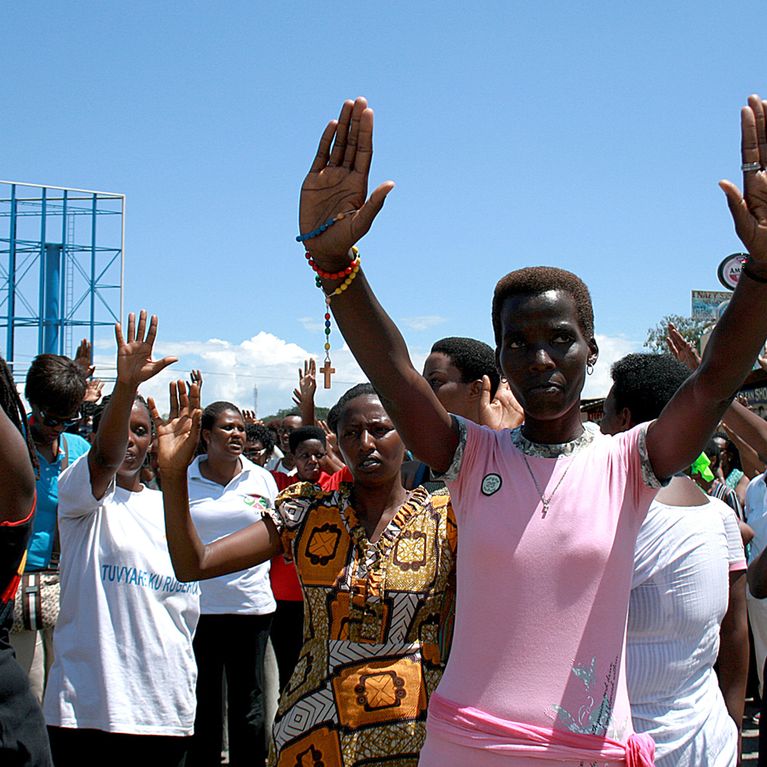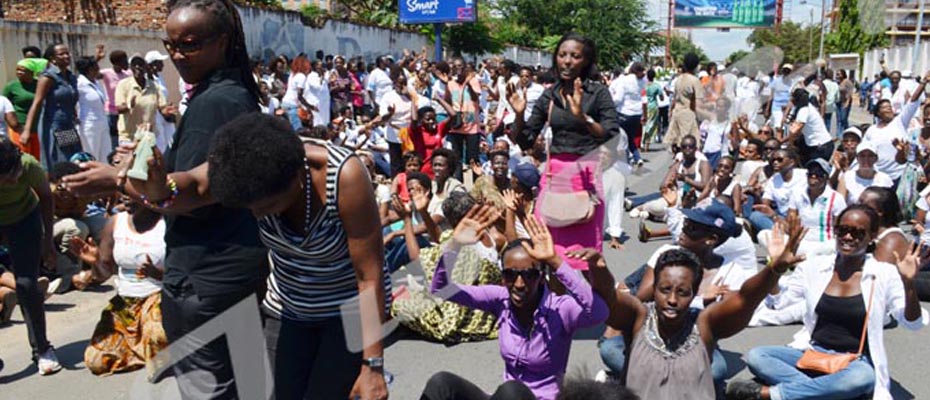
On Sunday, women brought the struggle for democracy to the capital’s city Center. This was the first major protest in Bujumbura, and the women were protesting much more than President Pierre Nkurunziza’s move to take a third term. They were demanding peace, unity, democracy, and recognition of their own power. Already many have likened this demonstration to the Burkinabé women’s spatula uprising last year, which helped overturn the government.
While the causes for the “current unrest in Burundi” are many, and familiar, the women brought something new to the national, and hopefully global, table. In their demands for recognition, they argued for the State’s responsibility to care about its resident, not just to take care of but to actively care for and about. Nkurunziza knew that his move to a third term, in violation of the Constitution and much more, would result in protests and then State repression, and he didn’t care. In Burundi the women see that as a failure of the State.
On Sunday, the women chanted, “We are the mothers. It is our children who are killed. It is our children who are in prison. We are here in the name of respect for human rights. We are here to oppose the third term.”
The third term comes after the recognition, after the mothers and children and deaths and imprisonment.
Beatrice Naymoya, one of the protest organizers, explained, “It’s not good for our country. You know the women and the children are the first to suffer. We’re asking the government and the international community to help us keep these two instruments intact: the constitution and the Arusha Agreement. Women decided to stand up today to say no to the violation of the constitution.”
Another spokeswoman, Elisabeth-Marie, added, “We are here today to support our brothers who are protesting the violations of our country’s fundamental laws.” As ever, the women take to the streets for themselves and in solidarity with all those who struggle for peace, unity, and democracy. That’s intersectionality in practice and in motion.
Ketin Vyabandiyaya elaborated, “We are tired. We want peace. We want respect for our nation and its laws. Our Constitution is sacred, as is the Arusha Peace Accord. They brought us peace after a decade of civil war in which we lost our sons and daughters. We never want that to happen again.”
Ketty Nivyabandi, Burundian poet, declared, “We came here to express our distress. We, the women, we are made helpless in this country because women are always the first victims of conflict. We are always the first to be affected by the situation, and we are tired. We want respect from our nation, we want freedom of expression for all Burundians.”
Despite the well-founded fear of brutal and even lethal repression, the women continue to organize. Having brought the first major demonstration to the nation’s capital, they are organizing another for next Sunday. Despite the fatigue and the fear, the women of Burundi are on the move, demanding peace, unity, democracy, recognition in a world where individuals and the State care.

(Photo Credit 1: aufeminin.com) (Photo Credit 2: Getty; http://www.iwacu-burundi.org)